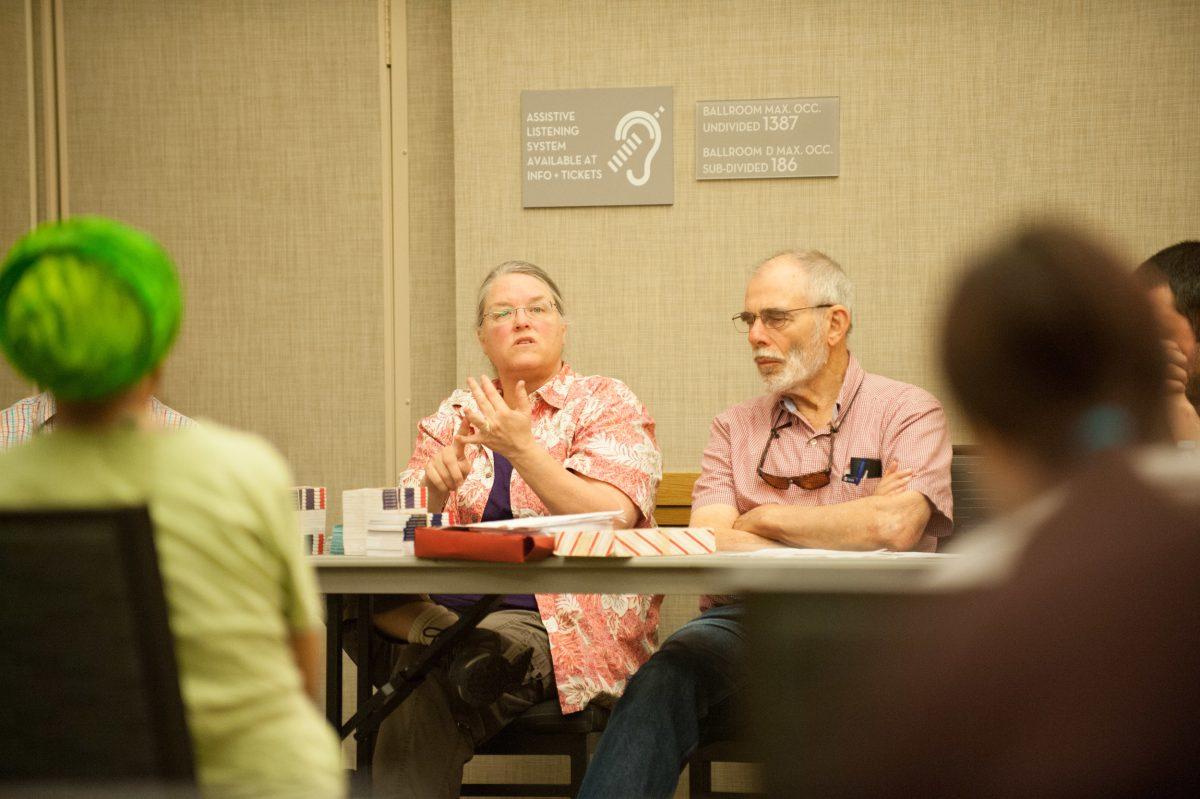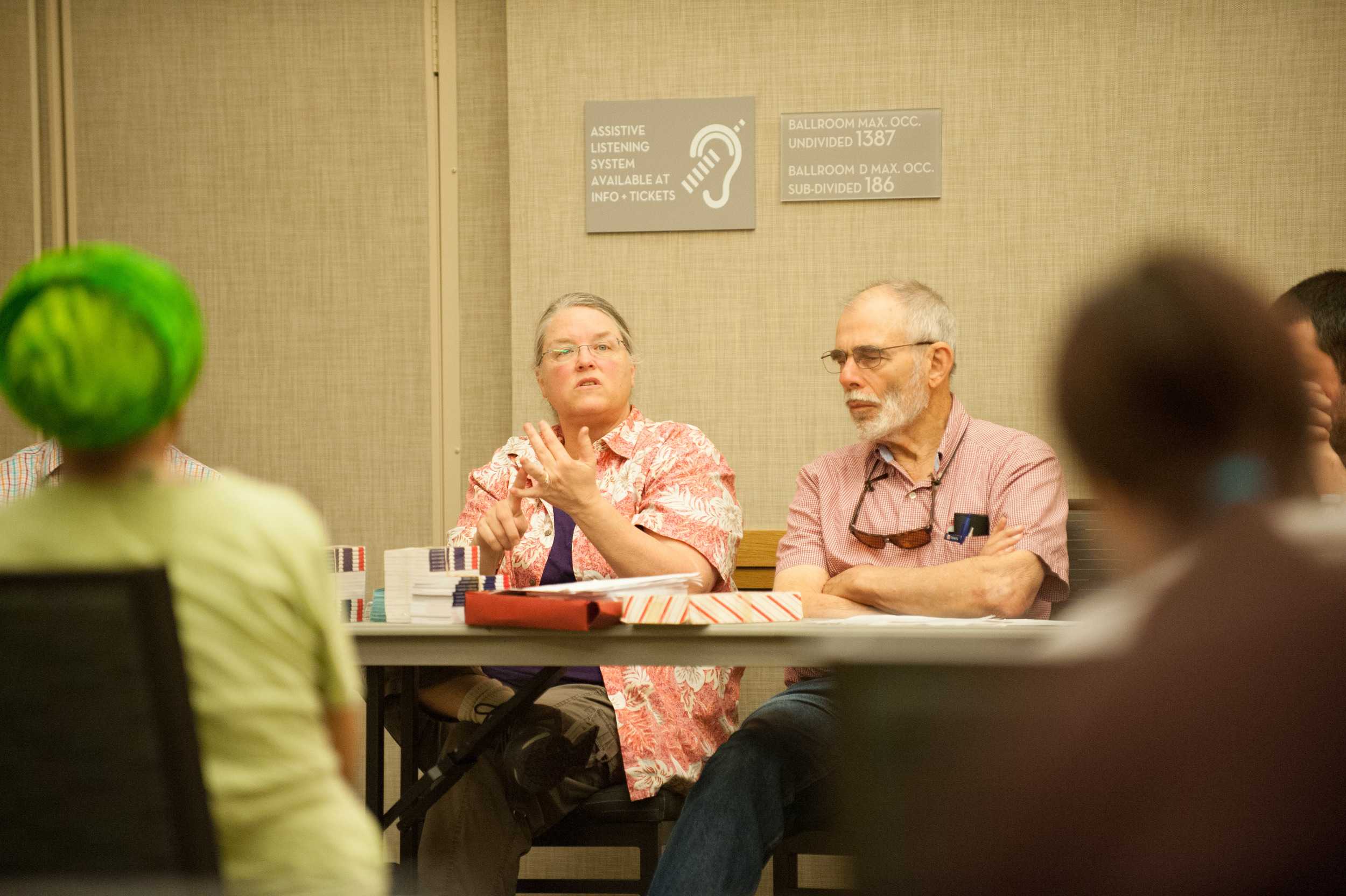The national conversation of police brutality and accountability was highlighted on Thursday in a Social Justice Week presentation by a panel from the Northern California American Civil Liberties Union and Police Accountability Clinic and Helpline.
The Police Accountability and Know Your Rights presentation at Sonoma State offered practical advice on how to be safe when interacting with police. In addition, the American Civil Liberties Union and Police Accountability Clinic and Helpline provided information about their respective organizations, which offer a range of services from personal counseling to legal aid.
“Police officers are here to serve and protect us and not the other way around,” said Nancy Palandati of the ACLU. “If no one complains, they are not going to change their way. If nobody pays attention, they are going to keep escalating their tactics. It’s not going to change unless people get involved.”
Sonoma County is uniquely linked to the national conversation when 13-year-old Andy Lopez was shot and killed by deputy Erick Gelhaus in October 2013. Of particular interest within the presentation is discrimination faced by minority communities by police.
Elizabeth Castanon, a student and sociology major from San Diego, said she grew up with incidents of harassment from police as a normal occurrence of life.
As a Latina, Castanon said she witnessed harassment toward her community, siblings and parents. She said her brother would tell stories of being pulled over frequently because the car he drove did not fit his appearance.
“I am a very aware that the color of my skin and what I am puts me in the ballpark for getting pulled over more often, or getting talked to more often,” said Castanon. “It’s kind of just the world we live in. I don’t accept it, I don’t like it, but I have to be aware that this is a possibility for me and that I may always be at a disadvantage.”
Protests over the deaths of Michael Brown in Ferguson, Mo. and Eric Garner of New York City raised the awareness of police conduct. At all stages of interaction, from conversation, detention to arrest, the panel agreed that keeping silent was the best form of conduct.
The perspective of one panelist, David Engel, represented the blunt reality of the national conversation.
“Do not trust police, they can lie to you, it is perfectly legal for them to lie to you,” said Engel. “If you lie to them, it is a crime. Whenever you are around police, keep your hands out of your pockets and do not make sudden movements. Do not walk behind police. You do not want to do anything that will startle them. Nervous cops are dangerous cops.”
Blade Wagner, a student at Sacramento State University who attended the event spoke of an incident three years prior he deemed unnecessary action similar to Engel’s perspective.
In a routine traffic stop, Wagner pulled over for two police vehicles.
As a number of officers approached his vehicle, Wagner reached toward his glove box for his vehicle registration, documentation he anticipated they might need. To his bewilderment, every officer pointed a firearm into the cabin of his car as he arose.
“It is excessive force that no average person is prepared for,” said Wagner. “That is an extreme case for an isolated traffic incident. An average person should not have to deal with that force.”
Wagner said that he was detained after the incident and was not read his Miranda rights.
As reflected by Marty McReynolds, the American Civil Liberties Union is in favor of body cameras for police officers on duty. The issue the organization has is there are generally little to no guidelines for police who wear equipment.
Late last year, the Sonoma County Board of Supervisors approved three five-year contracts with Taser International, Inc., which will include software management, cloud storage services and cameras.
A story by Bay City News Service noted that a Rohnert Park man asked that the program be delayed because law enforcement officers may be allowed o turn the devices off at their own discretion.
Access by the public to videos are not available without a court order or approval by the sheriff’s office.
Engel said that body cameras are very similar to dashboard cameras on police vehicles when they were first introduced.
Both showed the supposed transparency of the police, but did little to stem the actual problem.
The presentation touched upon the basic rights citizens are entitled to.
Panel members discussed that most people who report on incidents afterward were oblivious to their rights.
“It was really informative,” said Holly Lyon, a geography major. “I think they should have more things like this. We are not really aware of what are rights are. It’s important for people to know that you do have rights.”
Further information about the American Civil Liberties Union of Northern California is available at aclunc.org.





![[Both photos courtesy of sonoma.edu]
Ming-Ting Mike Lee stepped in as the new SSU president following Sakakis resignation in July 2022](https://sonomastatestar.com/wp-content/uploads/2024/04/CC4520AB-22A7-41B2-9F6F-2A2D5F76A28C-1200x1200.jpeg)



























